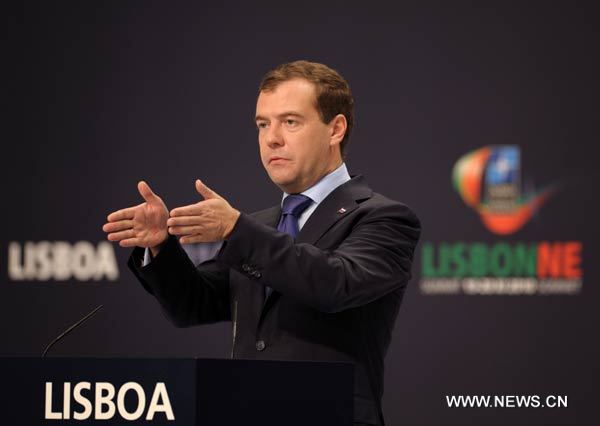
Missiles and Missile Defenses in Europe Highlight Limits of East-West Rapprochement
Publication: Eurasia Daily Monitor Volume: 7 Issue: 224
By:

Despite the statements from the NATO Lisbon summit about partnership with Russia, it did not take long for Moscow to demonstrate why partnership with it is so difficult, as well as revealing why there is little East-West trust. On November 30, RIA Novosti rebuffed a report originally cited by the Wall Street Journal that US officials had detected the movement of Russian land-based tactical nuclear weapons closer to NATO members’ borders, an act highlighting the lack of transparency in Russian defense policy and a violation of Presidential Nuclear Initiatives (PNI) made by Presidents George H.W. Bush and Boris Yeltsin in 1991-92. The next day, Moscow indignantly denied that it had deployed such missiles in Kaliningrad (RIA Novosti, December 1, 2010 and (Wall Street Journal, November 30). However, in fact, Western governments have long known about the violations of the PNI’s. In 2006 Sergei Ivanov, the then Defense Minister, informed President Vladimir Putin that Russia’s general purpose attack submarines were carrying nuclear weapons in defiance of the PNI’s (www.kremlin.ru/text/appears/2006/09/111058.shtml November 10, 2006).
In 2008, Sweden’s Foreign Minister, Carl Bildt, stated that Stockholm knew that Russia had already deployed tactical nuclear weapons on Baltic Fleet ships (The Local, August 18, 2008, https://www.thelocal.se/13780/20080818; Mark Franchetti, “Russia’s New Nuclear Challenge to Europe,” Timesonline, August 17, 2008, www.timesonline.co.uk/tol/news/worldeurope/article4547883.ece). So, it would hardly be surprising if Moscow was again doing so, especially as these deployments apparently coincided with the deployment of US and NATO missile defenses in Eastern Europe. Indeed, Viktor Zavarzin, Chairman of the Duma’s Defense Committee, made clear that Russia is not prepared to discuss these weapons until and unless NATO renounces nuclear weapons altogether, clearly an attempt to incite further Western divisions over this issue. Therefore, Moscow’s denials of its breaking the PNI’s are by no means iron-clad (Interfax, November 15).
Beyond that controversy some details emerged on what type of missile defense Russia wants to “share” with NATO. Russia wants what it calls a sectoral defense plan with NATO. According to this plan, Europe would be divided into sectors where each party would take upon itself the responsibility for shooting down a third party object that traverses its sector, thereby preserving the existing nuclear parity (ITAR-TASS, November 22). However, according to an article in Russia Profile, military analysts say this arrangement cannot work (Russia Profile, November 22). Since NATO’s concerns are with missiles coming from the Persian Gulf and Middle East this means that Russia will take upon itself the responsibility for defending all of NATO (presumably to obviate the necessity for NATO to have any systems or use them). Yet, not only are US and Russian systems still incompatible, Russia cannot mass produce suitable ballistic missile interceptors. In other words, there is no substance to Moscow’s proposal which is why NATO turned it down, albeit diplomatically (Russia Profile, Yezhenedevnyi Zhurnal, November 22).
Unhappy with this rejection and facing the possible refusal by the US Senate of the new START treaty with Washington, both Medvedev and Putin decided to tell the West in no uncertain terms that either they accept Moscow’s criteria for partnership and the treaty or there will be an arms race (www.president.ru, November 30; www.premier.gov.ru, December 1). This, of course, is an old Soviet and Russian threat designed to rattle the Europeans, but it clearly has had diminishing returns lately. Moreover, it underscores that Russia’s primary orientation to Europe and the US is mistrust, not a genuine desire for real partnership and that its calls for friendship resemble those of a protection racket. Essentially Russia, like a local Mafioso is saying, be my friend or else bad things will happen and I will threaten you. Unfortunately, this approach conforms all too much not only to Soviet history but to the recent Russian past. It is fully in keeping with the confirmation in recent publications in the press demonstrating that Western diplomats regularly characterize Russia as a mafia state. While those reports may pertain to domestic corruption and business, clearly the same psychology is evident in foreign policy.
Moscow’s threats and denials of threatening activities, about which the West has prior evidence, thus underscore why partnership is so fragile and mistrust is so rampant. Russia’s behavior also lends credence, or at least appears to do so, to enemies of the START treaty who will use this new episode concerning tactical nuclear weapons to undermine the ratification process that Russia clearly wants. It might yet turn out that by making these threats, Russia only undermines its own best interests while neither frightening the West nor obtaining its support for the desperately needed modernization of its economy.




